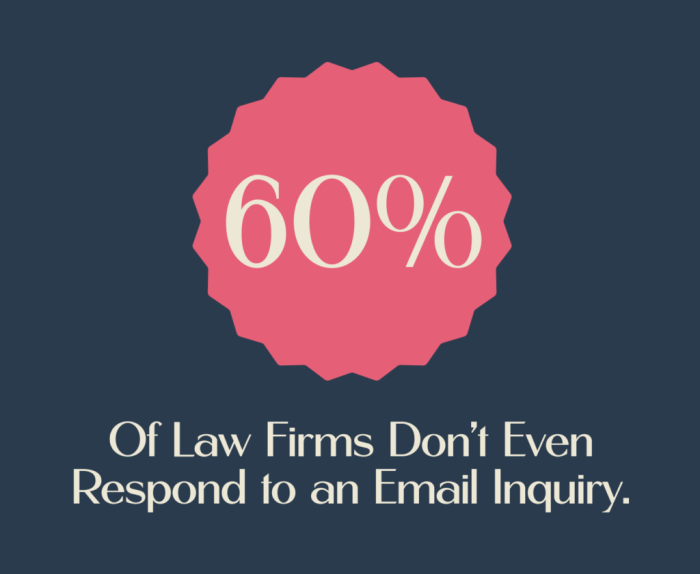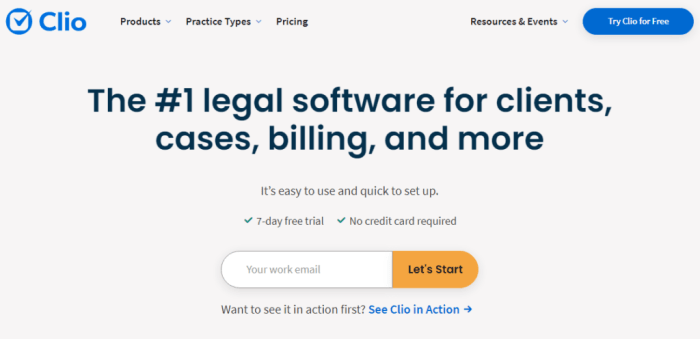Best crm software for law firms – Choosing the right Customer Relationship Management (CRM) software is crucial for law firms of all sizes. A robust CRM system streamlines operations, improves client communication, and ultimately boosts profitability. This comprehensive guide explores the best CRM software options specifically designed to meet the unique needs of legal professionals, considering factors like case management, client intake, document storage, and reporting capabilities.
We’ll delve into features, pricing, and suitability for different firm sizes, helping you make an informed decision.
Understanding the Importance of CRM for Law Firms
In today’s competitive legal landscape, efficient client management is paramount. A dedicated legal CRM system offers several key advantages:
- Improved Client Communication: Centralized communication history allows for seamless collaboration within the firm and consistent, timely updates to clients.
- Enhanced Case Management: Track deadlines, manage documents, and collaborate on cases efficiently, minimizing the risk of missed deadlines and improving overall case management.
- Streamlined Client Intake: Automate the client onboarding process, reducing administrative overhead and ensuring a smooth client experience.
- Increased Productivity & Efficiency: Automate repetitive tasks, freeing up valuable time for lawyers to focus on core legal work.
- Better Business Intelligence: Generate reports on key performance indicators (KPIs) to track progress, identify areas for improvement, and make data-driven decisions.
- Improved Client Retention: Personalized communication and proactive client service fostered by a CRM system contribute to stronger client relationships and increased loyalty.
Key Features to Look for in a Law Firm CRM
When selecting a CRM, consider these essential features:
Case Management Capabilities, Best crm software for law firms
The CRM should allow for detailed case tracking, including deadlines, tasks, documents, and communication logs. Look for features such as:
- Matter Management: Organize cases efficiently with customizable fields and statuses.
- Document Management: Securely store and access all case-related documents.
- Task Management: Assign and track tasks, ensuring timely completion of all necessary actions.
- Calendar & Scheduling: Integrate with calendars for easy scheduling of meetings, court appearances, and other events.
Client Relationship Management Tools
Effective client interaction is key. Essential CRM features for client management include:

Source: website-files.com
- Contact Management: Centralized database of client information, including contact details, communication history, and case details.
- Communication Tracking: Record all communication (email, phone calls, meetings) in one place.
- Client Portals: Enable secure client access to case files and communication.
- Automated Email Marketing: Send targeted email campaigns to nurture leads and update clients.
Reporting and Analytics
Data-driven insights are critical for improving firm performance. The CRM should offer:
- Customizable Reports: Generate reports on key metrics such as caseload, revenue, and client satisfaction.
- Performance Dashboards: Visualize key performance indicators (KPIs) to track progress and identify areas for improvement.
- Time Tracking: Accurately track billable hours for accurate invoicing and profitability analysis.
Integration Capabilities
Seamless integration with existing systems is vital. Look for CRM software that integrates with:
- Email Clients (Outlook, Gmail): Sync emails and contacts for efficient communication management.
- Practice Management Software: Integrate with existing practice management systems for a unified workflow.
- Document Management Systems: Securely store and access legal documents within the CRM.
- Accounting Software: Streamline billing and invoicing processes.
Top CRM Software for Law Firms: Best Crm Software For Law Firms
Several excellent CRM solutions cater specifically to the needs of law firms. Here are some of the leading options:
- Clio Manage: A popular choice known for its robust case management and client communication features. [Link to Clio Manage website]
- MyCase: Offers a comprehensive suite of features, including client intake, case management, and billing. [Link to MyCase website]
- PracticePanther: A user-friendly option with a focus on ease of use and intuitive design. [Link to PracticePanther website]
- CaseGlide: Designed for smaller firms, CaseGlide offers a simpler, more affordable solution. [Link to CaseGlide website]
- CosmoLex: A comprehensive solution that combines CRM functionality with practice management capabilities. [Link to CosmoLex website]
- Salesforce (with Legal Cloud): A highly customizable and scalable option suitable for larger firms. [Link to Salesforce Legal Cloud website]
Choosing the Right CRM for Your Law Firm
The best CRM for your firm depends on several factors, including:
- Size of your firm: Smaller firms may benefit from simpler, more affordable options, while larger firms may require more robust and scalable solutions.
- Specific needs: Consider your firm’s unique requirements, such as case management complexity, client communication preferences, and reporting needs.
- Budget: CRM software pricing varies significantly, so choose a solution that fits your budget.
- Technical expertise: Select a CRM with a user-friendly interface and adequate training resources.
Frequently Asked Questions (FAQ)
- Q: What is the average cost of a law firm CRM? A: Pricing varies greatly depending on the features, number of users, and vendor. Expect to pay anywhere from a few hundred dollars per month to several thousand dollars per month for enterprise-level solutions.
- Q: Can I integrate my existing email and calendar systems with a law firm CRM? A: Most reputable CRM solutions offer integrations with popular email clients (like Outlook and Gmail) and calendar applications.
- Q: How long does it take to implement a new CRM system? A: Implementation time varies depending on the complexity of the system and the size of your firm. Expect to allocate several weeks or even months for a complete rollout.
- Q: What are the key benefits of using a cloud-based CRM for my law firm? A: Cloud-based CRMs offer accessibility from anywhere, enhanced security, automatic updates, and scalability.
- Q: Do all law firm CRMs offer client portals? A: Many modern CRM systems offer client portals, allowing clients secure access to case information and communication.
Conclusion
Implementing the right CRM system can significantly improve efficiency, client communication, and overall profitability for your law firm. By carefully considering your specific needs and evaluating the available options, you can choose a solution that empowers your firm to thrive in today’s competitive legal market. Remember to take advantage of free trials and demos offered by many vendors to ensure a proper fit before committing to a long-term contract.
Call to Action
Ready to streamline your law firm’s operations and improve client relationships? Explore the CRM options discussed above and schedule a demo today! Find the perfect CRM to enhance your practice and achieve greater success.

Source: webfx.com
Query Resolution
What is the average cost of CRM software for law firms?
Costs vary greatly depending on the features, number of users, and vendor. Expect to pay anywhere from a few hundred dollars per month to several thousand, depending on your needs.
Can I integrate my CRM with existing legal software?
Many CRMs offer integrations with popular legal software, but compatibility should be verified before purchasing. Check for API availability and compatibility with your specific software.
How much training is required to use CRM software effectively?
Training requirements depend on the complexity of the software and your team’s tech-savviness. Most vendors offer tutorials and support resources, while some provide onboarding training.
What security measures should I look for in a legal CRM?
Look for features like data encryption, access controls, and compliance with relevant data privacy regulations (e.g., GDPR, HIPAA).
